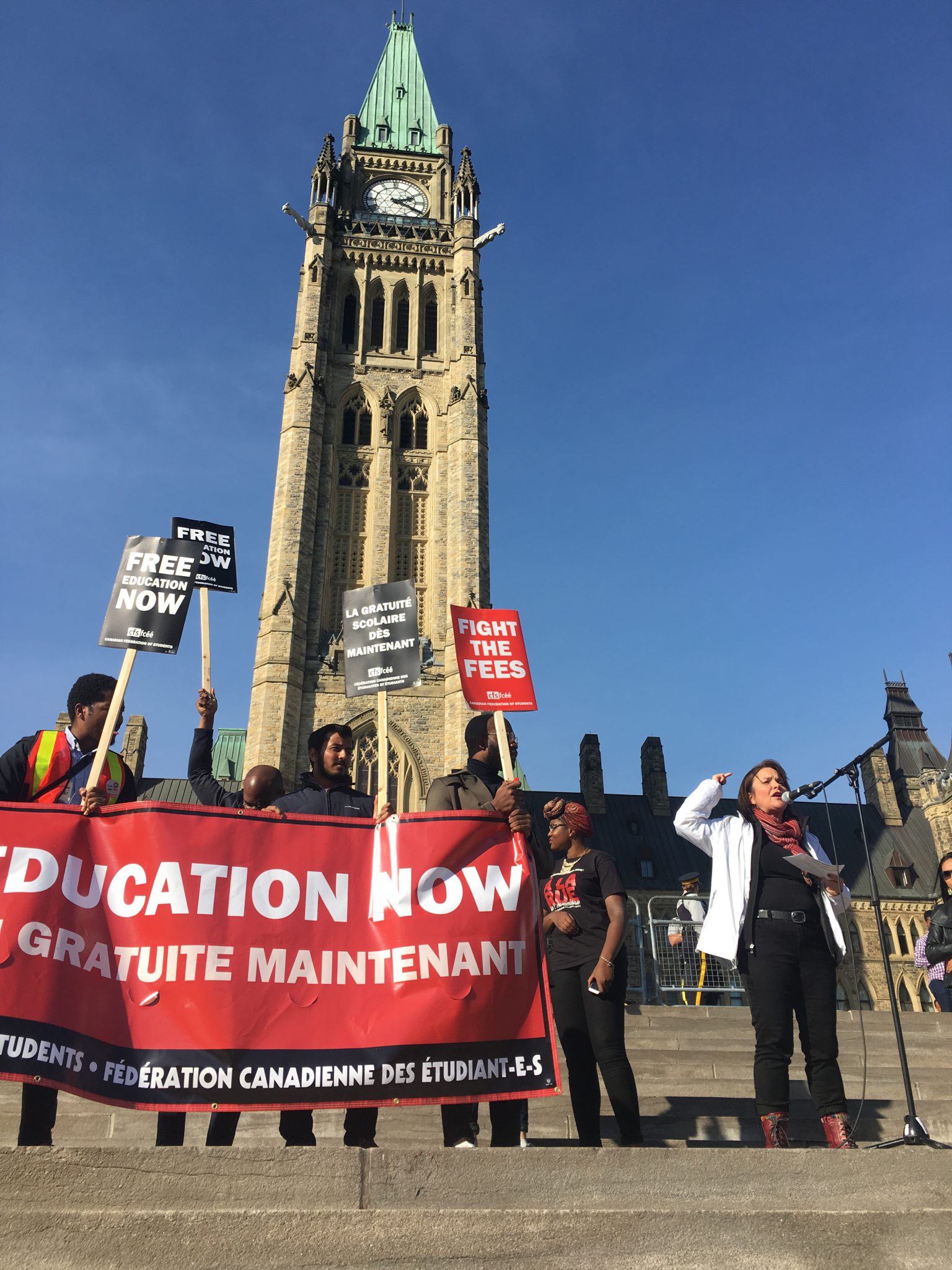On Wednesday November 2, 2016, Canada’s nurses and labour leaders joined thousands of students from over 50 campuses in 36 cities across Canada for All Out November 2nd Day of Action demanding universal access to education, education justice and public education for the public good.
In a show of solidarity, CFNU President Linda Silas joined hundreds of students in Ottawa, who rallied to fight the fees on Parliament Hill, and addressed the crowd with a message that education and health care should be for everyone – not just those who can afford it.
“Many respected leaders have argued that, ‘Education [and health care] should be a right, not a privilege.’ This is a statement that I believe in whole-heartedly,” said CFNU president Linda Silas. “The price tag attached to post-secondary education in this country is a barrier for far too many Canadians, and with the average education-related debt sitting at approximately $28,000, or estimations of as high as $40,000 for nursing students – this leads to a life of struggles, stress and sacrifice.”
The Canadian Federation of Students (CFS) is calling for universal access to education, meaning that regardless of who you are, where you are born, your age or background – you should have the right to access higher education without the barrier of cost or fear of incurring debt. They are also calling for education justice for students being pushed out of the current model of colleges and universities today, who are disproportionately Indigenous, racialized, queer and trans, people with disabilities, people raised in single-parent homes and people from low-income families. Lastly, CFS takes the position that public education is a public good that society benefits from as a whole, and it must be funded as such; colleges and universities must be not-for-profit and not tailored to private interests.
“We must stand together on these issues and recognize the socioeconomic and financial barriers that directly impact access to essential health services like pharmacare and education in this country, among other challenges,” said Silas. “We must work towards building a more inclusive, healthy, educated and empowered Canada.”
Another issue that the CFNU’s national executive board has been tackling is the Canadian nursing licensing exam change last year to the U.S.-import NCLEX-RN exam. This change in the nursing licensing process to the NCLEX has had many impacts on nursing students, resulting in higher failure rates, increased costs and undue stress for students.
“We know that our Canadian nursing students are some of the most highly educated nurses in the world, yet due to issues with the exam students are spending thousands of dollars on top of already sky‑high tuition fees to pay for additional prep courses and multiple re‑writes,” said Silas.
The CFNU continues to stand in solidarity with our affiliates at the Canadian Nursing Students’ Association (CNSA) who represent nearly 30,000 nursing students across Canada on this issue.
“Nursing students already have extreme debt, approaching $40,000 after completion of their degree,” said CNSA President Bryce Boynton. “With our new licensing exam (NCLEX-RN) and the issues surrounding it, our debts continue to skyrocket. It is costing our new graduates thousands extra, furthering the financial burden of seeking a higher education in order to provide competent care for Canadians.”
Canada’s nurses are proud to stand in solidarity with students across this country, who passionately believe that at the core of a just, equitable and fair society is a system of public post-secondary education that is accessible to everyone. A key part of this vision is for the government of Canada to act on the internationally recognized right of all people to education.

